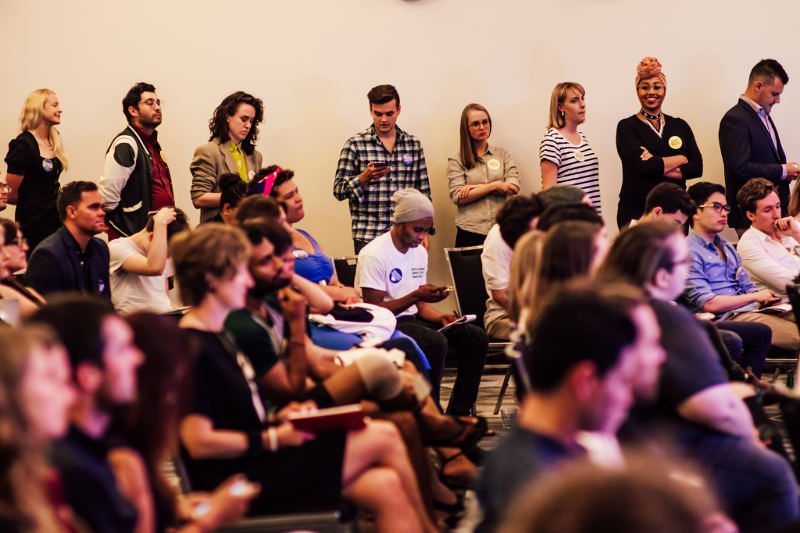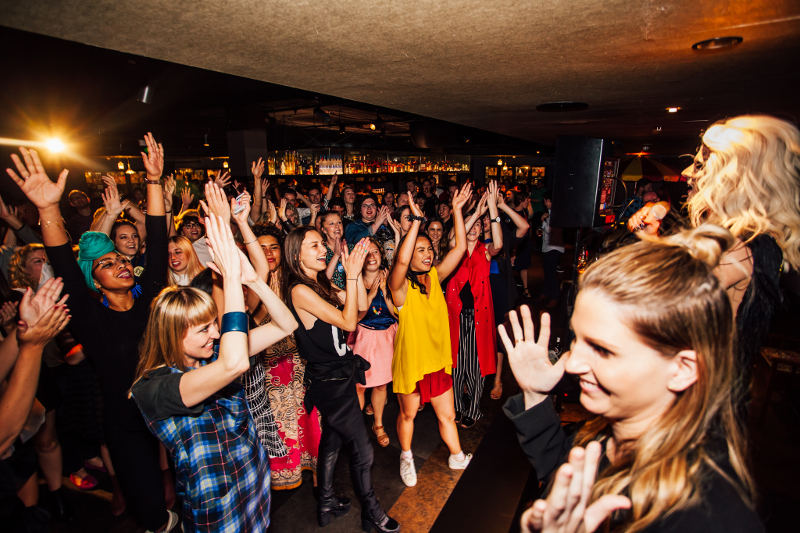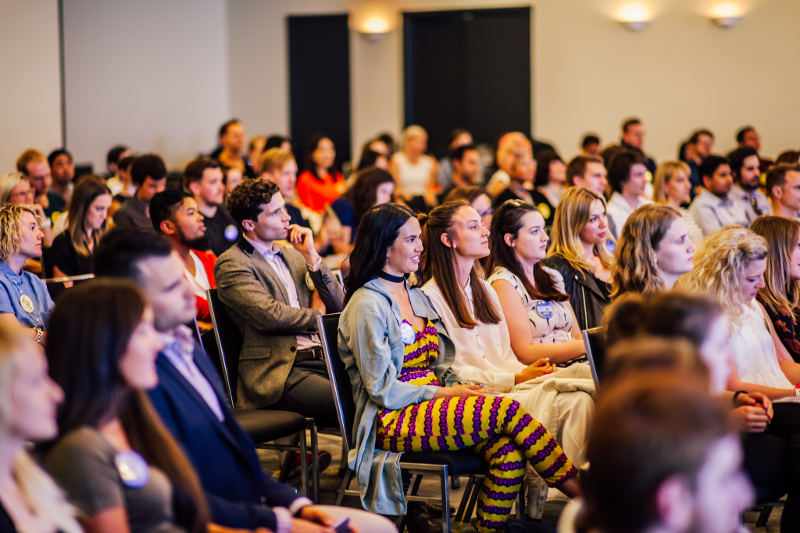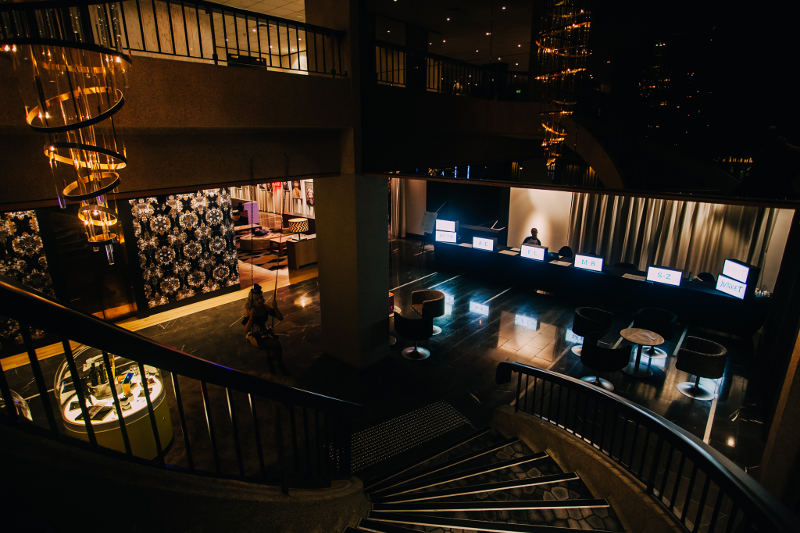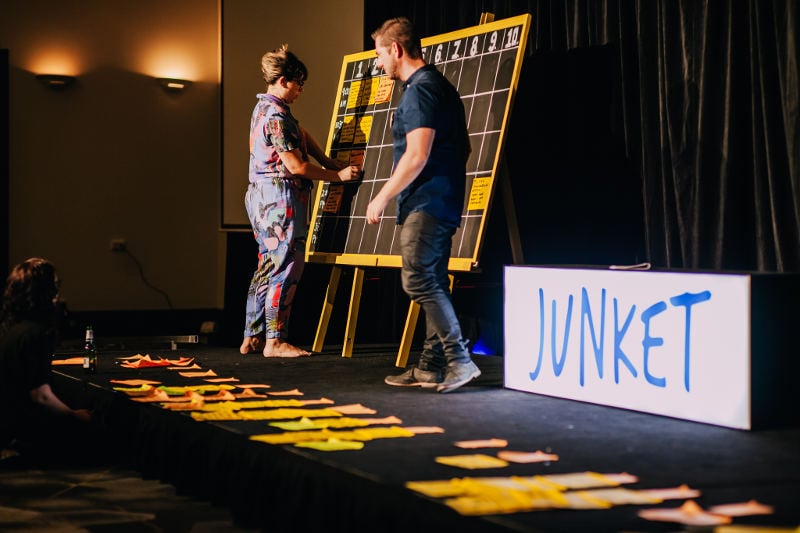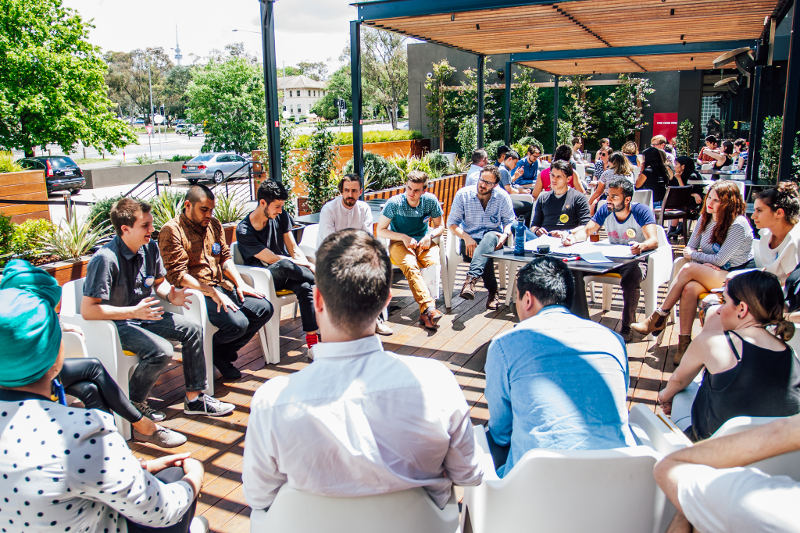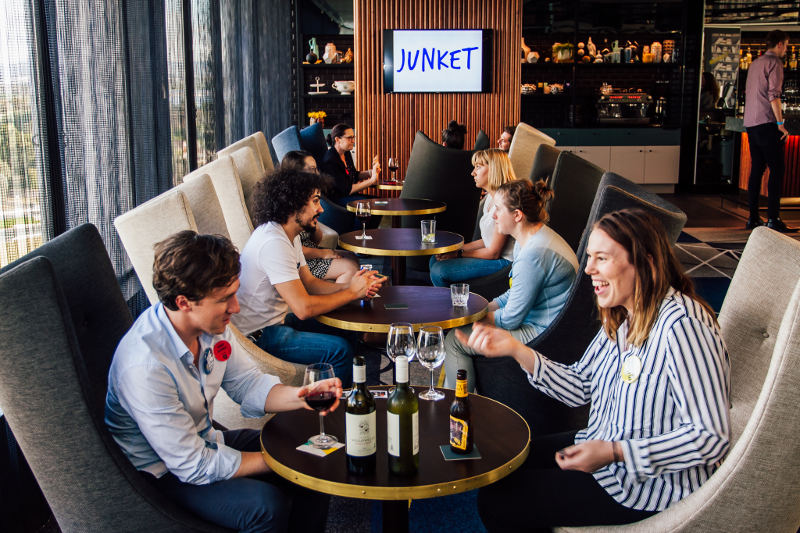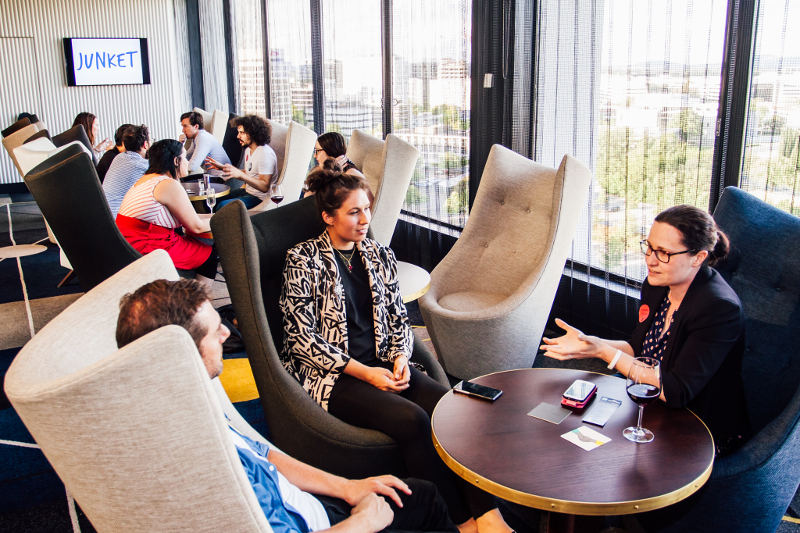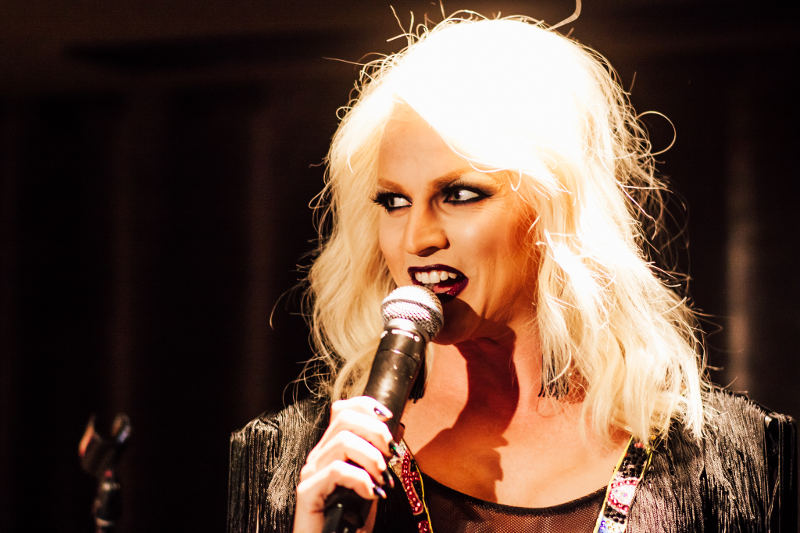#Junket Day Two + Three: Outcomes, Themes And Feedback
Junkee's first unconference finished up in Canberra yesterday. It was huge.

Cynicism was challenged. Projects were started. Positivity was pervasive. Ideas were had. Drinks were had too.
The post-conference comedown is real, and shared by many.
And it's a wrap! Here's the Class of #Junket 2015. Thanks for your energy, generosity & big ideas. Miss you already. pic.twitter.com/Tw6oIf4Tmd
— Jess Scully (@jessaroo) November 3, 2015
This article will do its best to wrap up the second and third day of Junket, Junkee’s first youth unconference which took over the QT Canberra from November 1-3. To read about the first day, head here; and for the TL;DR, watch the video below.
–
The Sessions And Surprises
At Junket, each one of the 200 handpicked delegates had the opportunity to pitch their idea, with the intention that each would form its own session. The sessions were roundtable discussions — no stages, no powerpoints, no audiences; just talking — and we had planned for about 50 of them, with ten session spaces running at a time.
It was a mixture of panic and delight which overtook the faces of Junkee Media staff members present, as more and more delegates lined up to pitch. The number went from 50 to over 100 in an hour, so with only a limited amount of time and space, we had to jam a few sessions together. This worked well in some cases, where the end-goals and philosophies were shared by the co-hosts; in others, it caused more tension than was probably helpful. The feedback has been noted and the format is fluid; it will likely change before we do it all again next year.
We ended up with 57 official sessions on the schedule for the next day, featuring two last-minute additions. We talked about funding the arts, unfucking the climate, and fixing the housing crisis. We talked about missing persons, street art, and skateboards in schools. We conjured up ways to solve the masculinity crisis, and to reframe disability away from the personal, and towards the socioeconomic. We asked how technology could help prevent suicide, bring asylum seekers’ voices into the national conversation, educate people about the environment, and keep indigenous culture alive. We discussed introverts in leadership and diversity on screen, and brainstormed ways to get young people more involved in aged care. Can we make Auslan a mainstream language? How do we close the gap and fix Indigenous health? Why are so many young people still so financially illiterate? How do we make STEM industries more inclusive? Are internships good, or totally exploitative? Why is sex on screen always so unrealistic?
I was relegated backstage during most of the sessions, so we’ll have a few other delegates and Junkee staff popping up on the site in future weeks to discuss some of the topics that were raised, and the action points that were arrived at. I did, however, make it to Amrita Hepi’s Beyonce dance class on Monday evening.
I bring up the class because it represented a key theme of the event: that people got out of it what they put into it. For instance, me: I am a cynical person who suffers from anxiety and tends to be more comfortable sitting with a beer and a few friends than dancing with strangers in broad daylight while sober. Earnestness sometimes makes me uncomfortable. So do my limbs, when they are encouraged to move in a particular direction, in unison and to a beat.
But as Amrita herself put it in our closing session (open-mic style, delegates were encouraged to share any tangible goods that were coming out of Junket, and raise anything we could improve on next year): in order to change and make change, we need to embrace the uncomfortable. I feel lucky that I was able to.

Not pictured: everything wrong I was doing with my butt. (Photo by Josh Sellick.)
The dance class wasn’t the only extra-curricular activity. The 60-second pitches from the Telstra Elevator Pitch will be online tomorrow, ready for you to vote for the winning idea. (Warning: there are some pretty amazing ones.)
There was a lunch set by Dan Kelly, who managed the massive feat of getting a room full of talkers to stop talking and listen to him. And at the first birthday party of our sister site AWOL, there was a surprise set from Ru Paul’s Drag Race runner-up Courtney Act. She is, unsurprisingly, amazing.
There was also the Human Library: a two-hour session in which delegates could borrow one of eleven Canberrans — including the first openly gay US Ambassador John Berry, and National Museum of Australia curator Jennifer Wilson — to talk about their work, passion and expertise.
But for this participant, the best non-scheduled events at Junket were the sessions between the sessions. The conversations that happened at meals, over a beer or coffee, while sharing a cigarette, while getting a portrait taken by Daniel Boud. In an elevator, on a couch, on the dance floor at a party — or while sitting under a table at 2am in someone else’s hotel room, chatting about mental health awareness with a manufacturing union rep.
The diversity of people and ideas were always going to be the key to Junket. They didn’t disappoint.
–
What Other People Are Saying
Articles have started trickling across a few other platforms, and indicate that for all its hopefulness and ambition, Junket did or will result in actual projects, movements, and collaborations. In The Guardian, Daniel Hurst went to a variety of sessions on education, introverted leadership, and youth enrolment. He spoke to delegate Calum Lindsay-Field: “It’s not necessarily the tangible outcomes that are going to be the big wins, but it’s the new networks and information sharing,” Lindsay-Field says. “What I’m hoping is it triggers some cross-sector collaboration ideas and gets people thinking outside of their bubbles.”
The Australian reported on a proposal by Sydney MP Alex Greenwich, which was arrived at after his afternoon session on voter enrolment: to limit driver’s licenses and proof-of-age cards to young people who are enrolled to vote. “It could be a default way of getting people on the electoral roll by agencies interacting and engaging with other,” Greenwich said. Meanwhile, words have been written by some of the other delegates, like cardiothoracic surgeon Dr Nikki Stamp (who co-hosted a packed session on gender equality and the pay gap), and food scientist and CSIRO PhD scholar Emma Beckett (who hosted a session on missing persons in Australia). It would be inappropriate of me to pick favourites, but if I did it would be a post by writer Patrick Lenton: ‘I went to #Junket and all I got was this massive feeling of hope‘.
The Guardian posted a second piece, collating 300-ish summaries from five Junket delegates. Writer and actor Nakkiah Lui — who hosted an impromptu session, ‘Ask An Aboriginal’, with Joe Williams, Allan Clarke and Cherisse Buzzacott — says she loved it, and was happy to not be “the lone, box ticking ‘Aboriginal’.” She writes: “There was a whole variety of us with different thoughts and views and fields. And we didn’t all like each other, either.” Policy analyst Trisha Jha acknowledged the ambitious aims of the event, but, she says, “a mere talkfest it wasn’t. The diversity of delegates and experiences was designed to throw up opportunities for collaboration that could propel people’s projects and ideas.”
Yassmin Abdel-Magied writes about the common thread that weaved its way through many of the sessions: how to be an effective ally. “Often people who did not identify with a minority group but who wanted to engage were unsure whether they would be welcome,” she says. “Being an effective ally includes active listening while building the capacity of others to represent themselves, rather than doing it for them.” Dan Nolan starts his round-up like many others, by acknowledging his initial scepticism — but like many others, he was surprised by the genuine diversity among both the delegates and the session topics. “Unlike a lot of these love-ins it wasn’t the usual mix of journos, social media types and their ancillary halo mates, it was a truly diverse group of people in terms of backgrounds, vocations, sexuality, ethnicity and more.”
So, that’s the back-pats sorted — but we weren’t clear from criticism.
In Crikey, non-delegate Helen Razer — through her “spy” — draws attention to the uncomfortable balance between the involvement of major brand sponsors, and some of the conversations that were happening in each session. She refers to the “delusion of empowerment”, “foolish optimism” and the “ecstasy of communication” (in fairness to us, someone who cringes at optimism and personal narrative was never going to get behind an event like Junket), but allows that there is perhaps some value in believing “that some social justice conversation is better than no social justice conversation at all.” She also calls me “smart” and “very upright”, so we cool.
In the aforementioned Guardian round-up, Sam Twyford-Moore raises a complaint which was also aired by a few others on Twitter (in amongst the expected cynical jibes): that there weren’t enough delegates from the ACT. This one is easy to rebut — applications were open to everyone, and the ACT was the most over-represented state at Junket per capita, four times moreso than its next competitor (NSW) even without the Human Library. But while we did put effort into having a diverse programming committee, perhaps we should also have secured a representative from each state as well; that is good, actionable feedback for next year’s event.
Twyford-Moore also argues we could have been clearer about the role of the Junkee staff sitting in on the sessions. “Every word felt like it was being collected, collated and turned into notes for the marketing machine behind the scenes,” he writes. As was noted in the opening session, we had Junkee staff members present in some of the sessions to record the names of the delegates who showed up (to help connect them with each other later), make sure there were actual action points arrived at, and help us write pieces about some of the key issues on this site. The note-taking was just to help us cover the conference in its aftermath, but we’ll explain that better next year.
So: What Next?
Due to the sensitive nature of many of the topics, and the openness that was encouraged and felt during the sessions, the pieces we publish around each issue will be produced in collaboration with the delegates involved. We won’t tie any individuals to quotes or opinions without their consent, and we will protect people’s privacy and intellectual property. This also means these articles may take a bit more time to pull together than we anticipated.
As for the delegates, they’re all connected through our event app and social media, starting Facebook groups and sub-groups to help continue the conversations that were started at Junket and bring some of those ideas out into the world.
The first year of Junket was an experiment, and we don’t really know what the event will look like next year. But if the next group of delegates is as diverse, fascinating and open-minded as this one, I might find myself dancing in public again.
–
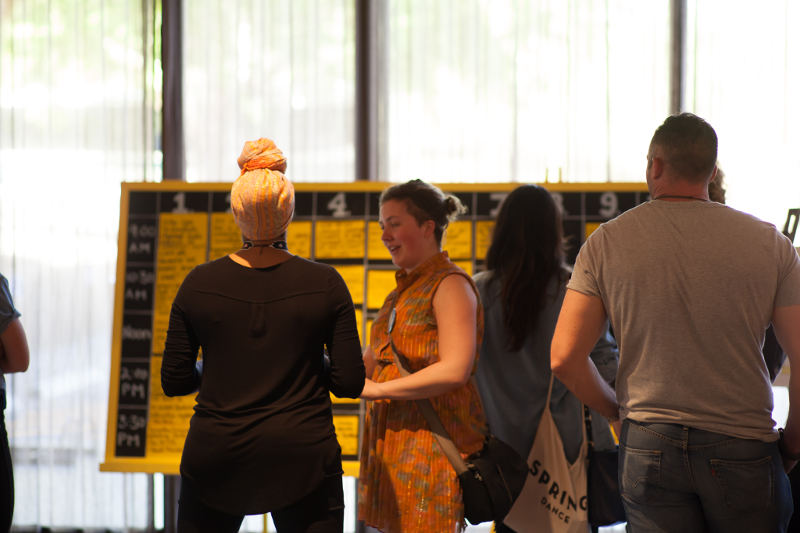
–
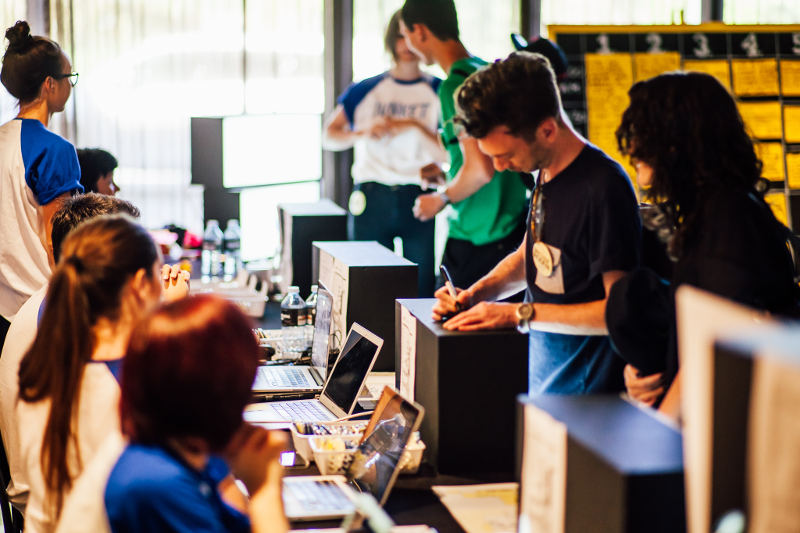
–
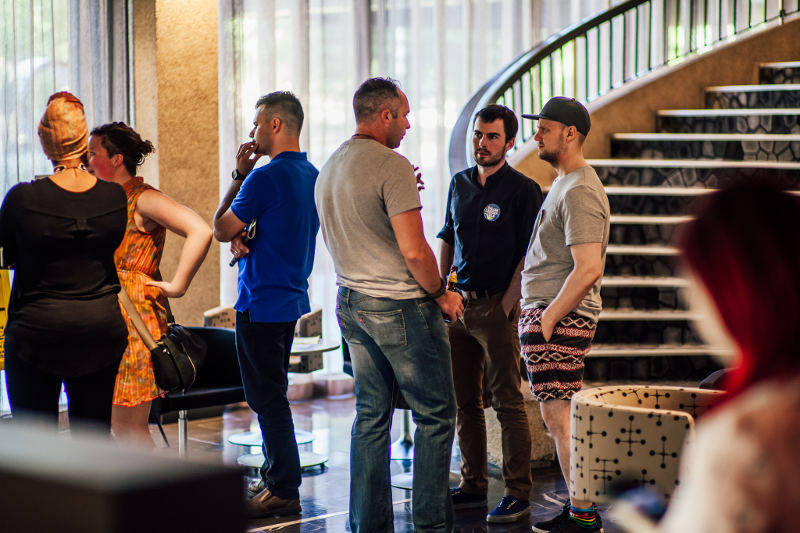
–

—
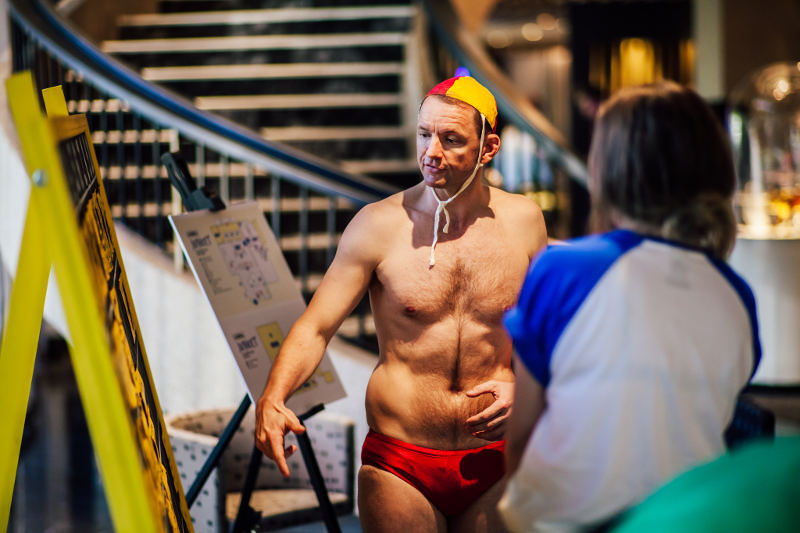
–

–

–
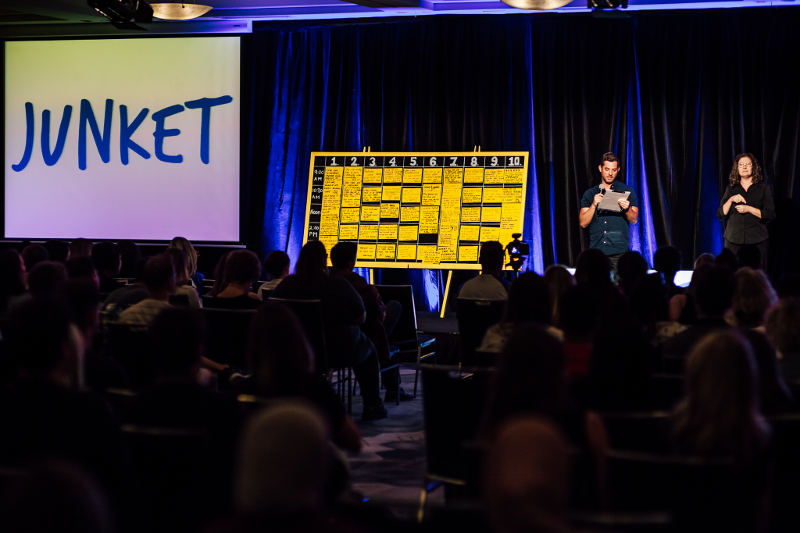
–

–
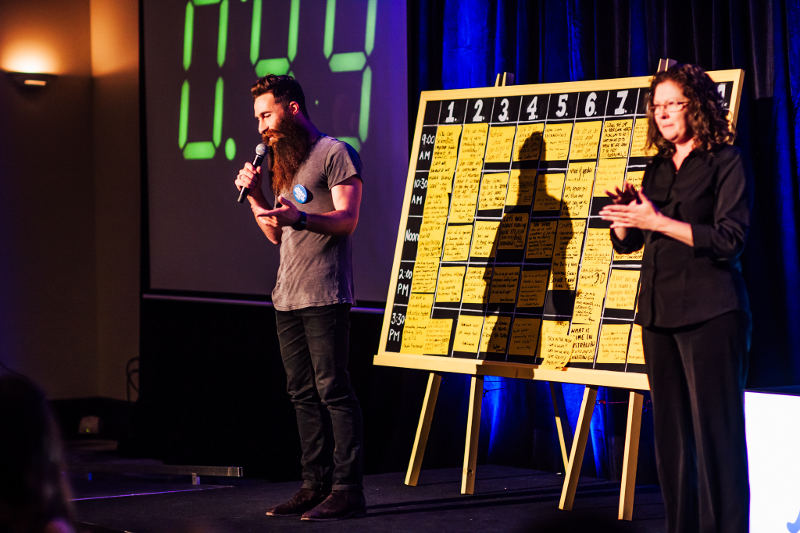
–
–

–

–
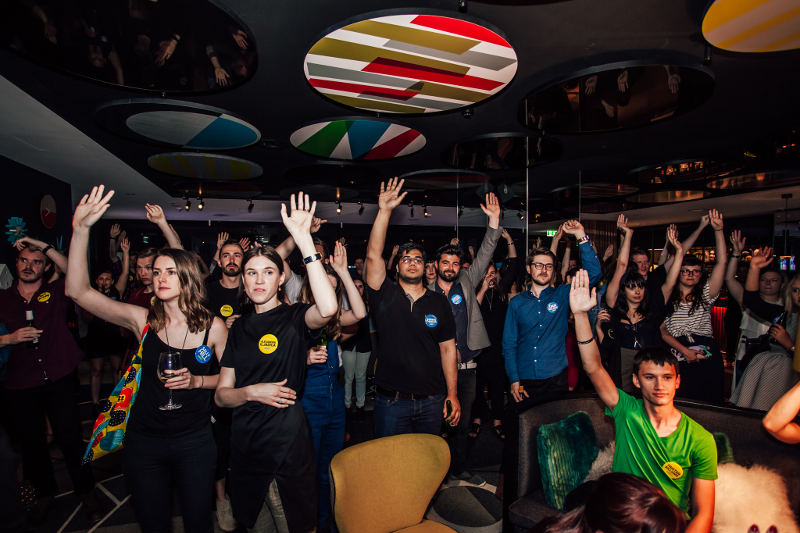
–
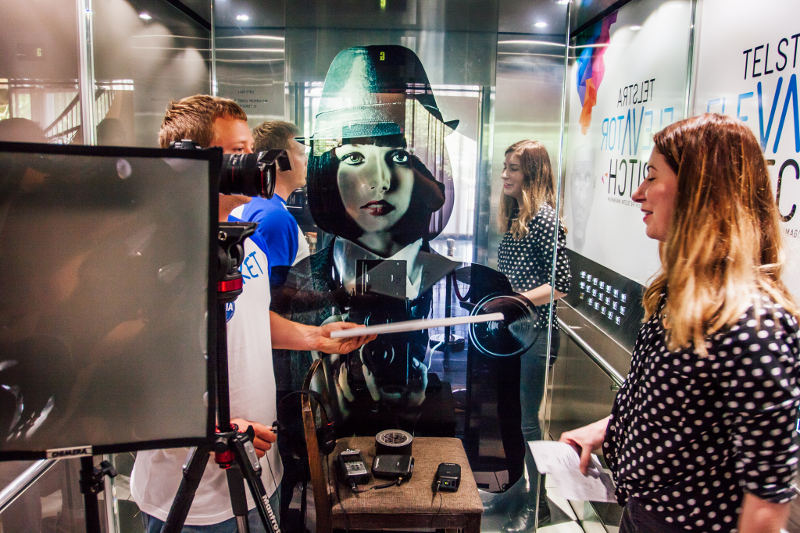
–

–
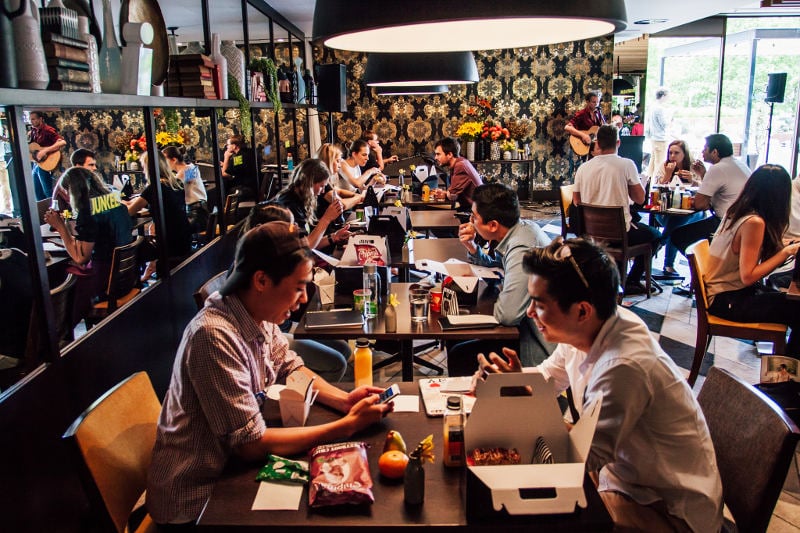
–
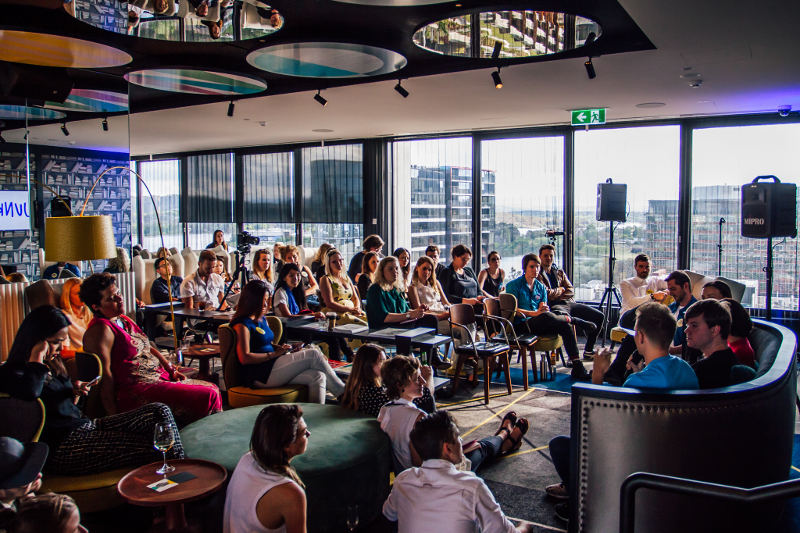
–
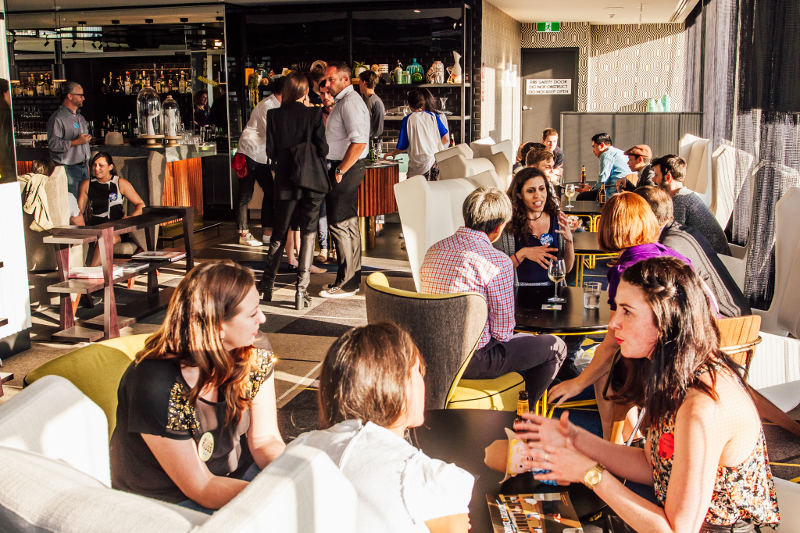
–
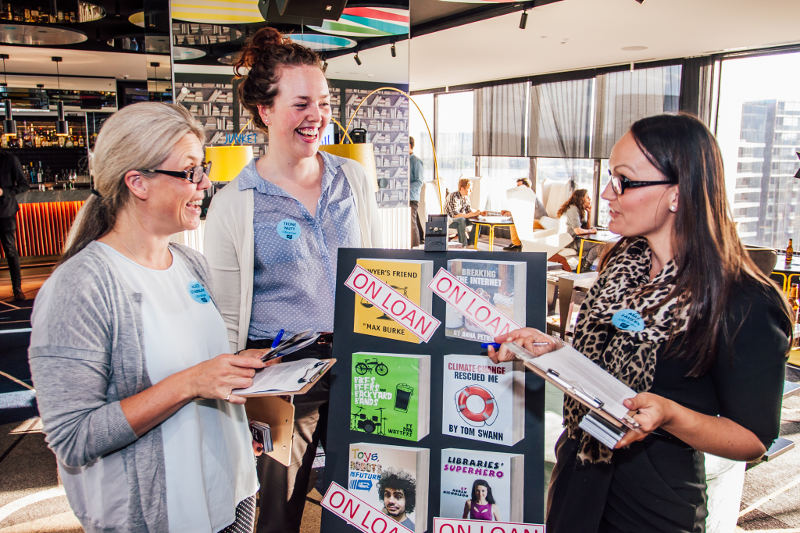
–
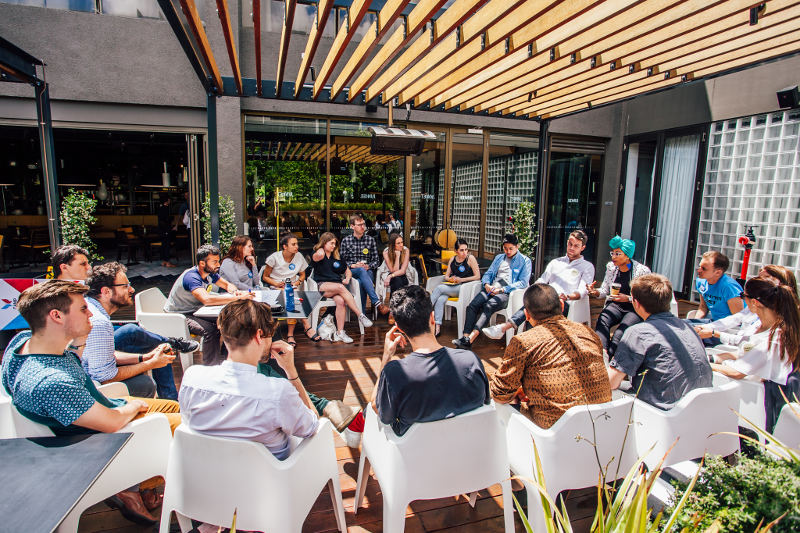
–
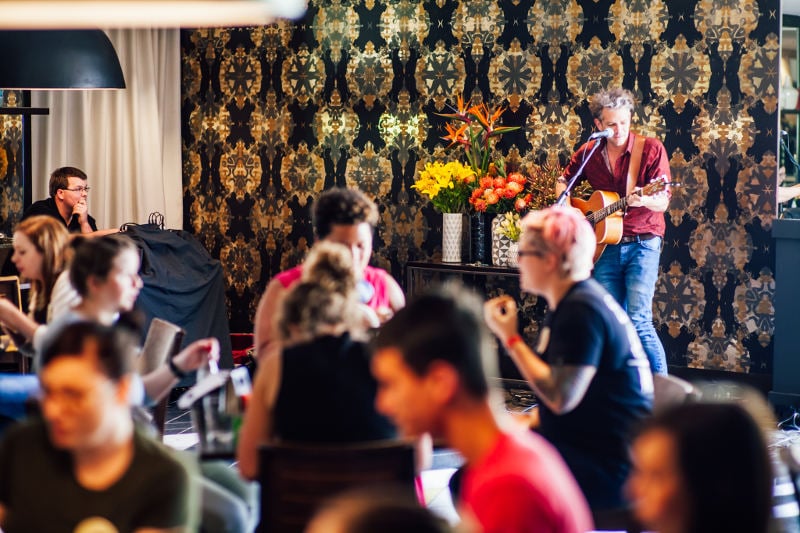
–
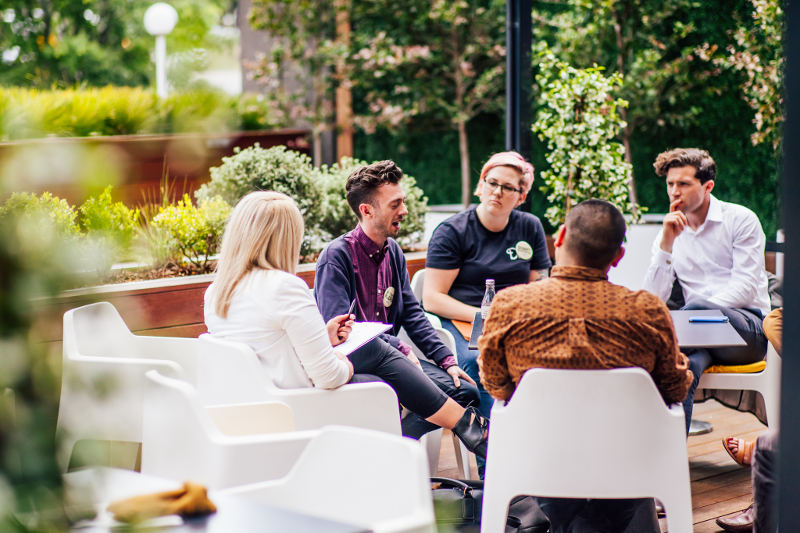
–

–
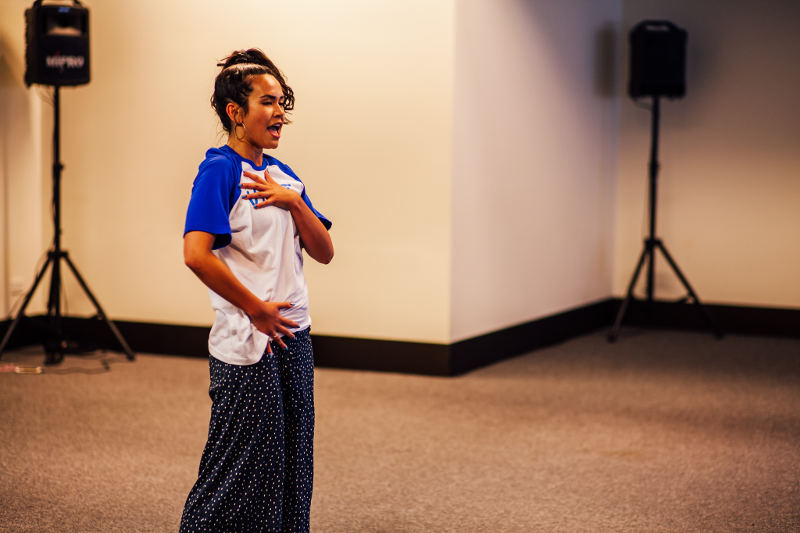
–

–
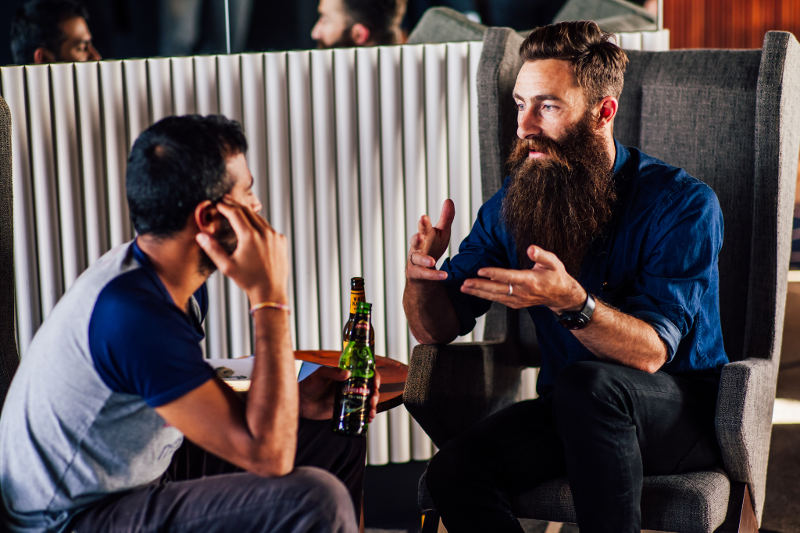
–
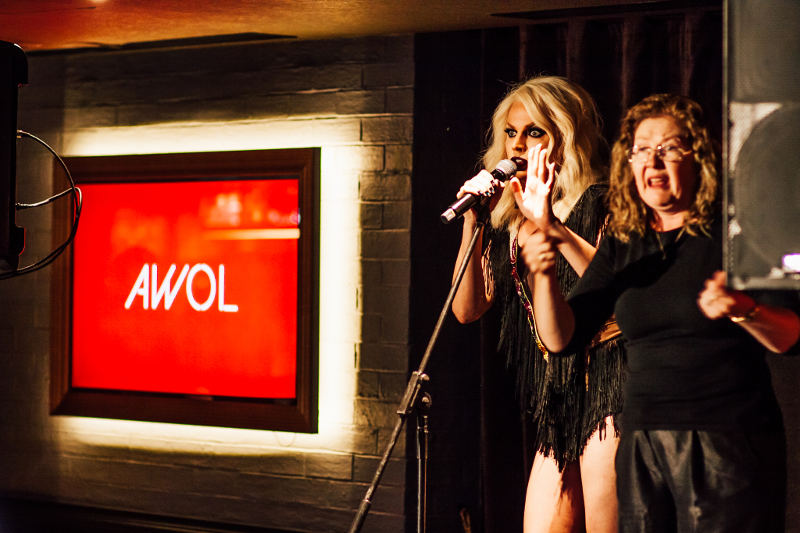
–
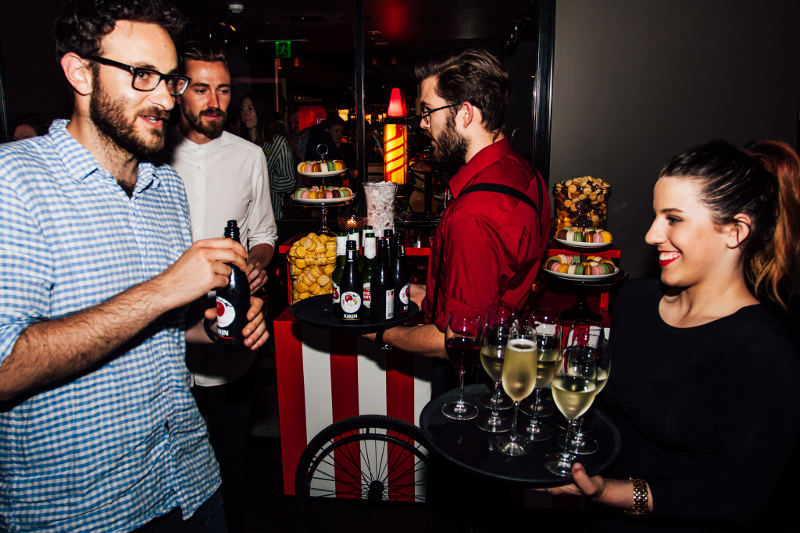
–
All photos by Josh Sellick.
